Disclosure: This article contains affiliate links. We may earn a commission from purchases at no extra cost to you, which helps our travel content.
Standing at the edge of one of Constantine's dramatic gorges, the scent of ras el hanout spices and freshly baked khobz bread wafted up from the ancient medina below. This wasn't my first rodeo with North African cuisine—I'd explored Moroccan tagines and Tunisian brik—but Constantine promised something uniquely its own. As someone who grew up straddling German precision and Mexican warmth, I've always been drawn to places where cultures collide on a plate. Constantine, Algeria's City of Bridges, suspended dramatically across deep ravines, offers exactly this cultural crossroads in its cuisine. With just a weekend and a modest budget, I set out to discover how Berber traditions, Arabic influences, and Mediterranean ingredients blend in this remarkable cliff-top city. Vorsicht (careful) though—once you taste Constantine's flavors, ordinary food might forever seem a bit bland by comparison.
Navigating Constantine's Market Maze
My safety inspector instincts kicked in immediately upon entering Souq el-Asr, Constantine's main market—crowds flowing in unpredictable patterns, vendors calling out prices, and narrow pathways requiring constant vigilance. But beyond the initial chaos lies a methodical organization that would impress even my German relatives.
The market follows an ancient logic: spice vendors cluster together creating mountains of colorful powders—vibrant yellow turmeric, brick-red paprika, and the complex ras el hanout blend that contains upwards of 30 different spices. Nearby, butchers display fresh cuts of lamb and beef, while separate sections house vegetables, preserved lemons, and olives soaking in aromatic brines.
What struck me most was how Constantine's geography—a city built across deep gorges connected by bridges—has shaped its market culture. Unlike flat-terrain markets I've explored in Mexico or Germany, Constantine's souq adapts to the city's vertical nature, with certain specialties found only in specific elevation zones.
I found my market companion invaluable—a small crossbody bag that kept my essentials secure while leaving both hands free to examine produce and haggle with vendors. As someone who's navigated markets from Frankfurt to Oaxaca, I've learned that proper preparation makes all the difference between an overwhelming experience and a delightful one.

💡 Pro Tips
- Visit the souq between 8-10am when produce is freshest and crowds are thinner
- Bring small denomination dinars as vendors rarely have change for large bills
- Learn the phrase 'Bekam hada?' (How much is this?) for easier price negotiations
Breakfast Rituals: More Than Just Fuel
In Constantine, breakfast isn't merely sustenance—it's a ritual that reveals the city's historical layers. My first morning began at Café Riadh, a hole-in-the-wall spot where locals outnumbered tourists twenty to one. A good sign, natürlich.
The star of Constantine's breakfast scene is chakchouka—eggs poached in a spiced tomato and pepper sauce that reminded me of my mother's Mexican huevos rancheros, yet with distinctly North African spice profiles. What makes Constantine's version unique is the addition of merguez sausage, a spicy lamb creation that adds depth to the already flavorful dish.
No proper Algerian breakfast is complete without msemen—square-shaped, flaky flatbreads that remind me of paratha but with their own distinct character. Locals dip these in honey or apricot jam, creating a perfect sweet counterpoint to the savory chakchouka.
The coffee culture here bridges European and North African traditions. The preferred method is a thick, potent brew similar to Turkish coffee but with cardamom notes that speak to Algeria's spice route history. I recorded the various breakfast combinations in my travel journal, something I've done since my first solo trip to document culinary discoveries.
What fascinated me most was how breakfast venues functioned as community spaces—primarily for men in traditional cafés, though this is gradually changing. As a female solo traveler, I found morning meals an excellent opportunity to observe local customs while planning my day's adventures.

💡 Pro Tips
- Breakfast typically runs later than in Europe - most cafés don't get busy until 8:30-9:00am
- Request 'sans sucre' if you prefer your coffee without the traditional heavy sweetening
- Most breakfast spots don't accept credit cards, so carry sufficient cash
Street Food Adventures: Bridges Between Cultures
Constantine's suspension bridges don't just connect physical spaces—they symbolize the cultural bridges evident in the city's street food. Having sampled street cuisine from Frankfurt's currywurst stands to Oaxaca's tlayuda vendors, I approached Constantine's offerings with an experienced palate and safety-conscious eye.
The medina's narrow lanes reveal vendors specializing in karantika, a chickpea-flour cake seasoned with cumin and harissa that costs mere pennies yet delivers complex flavors. What makes Constantine's version distinct is its texture—slightly firmer than versions I've tried elsewhere in North Africa, allowing it to be eaten by hand while exploring the city's precipitous streets.
My absolute favorite discovery was garantita—a portable savory pie filled with a mixture of tuna, capers, harissa, and preserved lemon. The Spanish influence is unmistakable, yet thoroughly Algerian in execution. At just 70 dinars (roughly €0.50), it's the definition of budget-friendly sustenance.
The bridge neighborhoods each feature their own specialty. Near Sidi M'Cid Bridge, I found the city's best bourek—crispy phyllo pastries filled with spiced meat or cheese that make perfect portable snacks while admiring the vertigo-inducing views. The vendor's family has operated from the same location for four generations, their recipe unchanged since French colonial times.
Safety tip from my professional background: street food in Constantine generally follows good hygiene practices, but look for vendors who handle food and money separately, and whose ingredients are kept covered and refrigerated where appropriate. I've never experienced issues here, but my water purification tablets come with me everywhere as a precaution for drinking water.

💡 Pro Tips
- The best street food is found between 11am-2pm when turnover is highest and ingredients freshest
- Watch where locals queue - the longest lines usually indicate the safest and tastiest options
- Ask for 'hار' (spicy) or 'maش hار' (not spicy) to control heat levels
Dining With Locals: Home-Cooked Treasures
My safety inspector career has taught me to look beyond the obvious, and Constantine's culinary scene requires exactly this approach. While restaurants exist, the city's most authentic flavors hide behind residential doors in homes that occasionally welcome travelers through platforms like EatWith or through personal connections.
Through a friend of a friend, I secured an invitation to dine with the Benali family in the historic Casbah quarter. Their third-floor apartment offered vertigo-inducing views of the Rhumel Gorge while Madame Benali prepared a feast that no restaurant could match.
The meal began with chorba frik—a hearty soup of lamb, cracked wheat, and tomato that's particularly popular during Ramadan but enjoyed year-round. The Benali family version included chickpeas and a distinctive blend of mint and cilantro that balanced the richness.
The centerpiece was doubara—Constantine's signature dish that you'll rarely find in restaurants. Similar to the more famous couscous, doubara uses a larger grain and incorporates white beans and chunks of lamb in a sauce fragrant with cinnamon and ginger. What makes Constantine's version unique is the addition of kadid (dried meat) that adds an umami depth I've rarely encountered elsewhere.
Dessert brought tamina—toasted semolina mixed with butter, honey and cinnamon. Simple yet transcendent, especially when accompanied by mint tea poured from impressive heights into small glasses—a theatrical serving method that aerates the tea.
The evening wasn't just about food but cultural exchange. Using my pocket translator to bridge language gaps, we discussed everything from Algerian wedding traditions to my experiences in river rafting safety. By meal's end, I'd been invited to return for a cousin's wedding—the ultimate compliment in Algerian culture.

💡 Pro Tips
- Use reputable platforms like EatWith or Traveling Spoon to find home-dining experiences
- Bring a small gift for your host - imported chocolates or coffee are always appreciated
- Learn basic dining etiquette: eat with your right hand if traditional seating is on floor cushions
Sweet Endings: Constantine's Dessert Traditions
If I've inherited anything from my German heritage, it's a methodical appreciation for precision—something Constantine's pastry artisans share in abundance. The city's sweets tell stories of Ottoman influence, French colonial history, and indigenous Berber traditions.
My systematic exploration began at Patisserie Frères Bencharif, a third-generation establishment near the Sidi Rached Bridge. Their specialty is makroud—semolina cookies filled with date paste, fried and then soaked in honey. Constantine's version differs from others I've tried across North Africa by incorporating orange blossom water that adds a floral complexity.
Qalb el louz (heart of almond) quickly became my afternoon indulgence—a semolina cake soaked in syrup and topped with almonds. The Constantine variation includes a hint of geranium essence that elevates it beyond similar desserts I've tried elsewhere.
What surprised me most was discovering dziriette—small chocolates with almond paste centers that represent the French-Algerian fusion. Created during colonial times but thoroughly Algerian in their spice profile, they showcase how Constantine absorbs outside influences while maintaining its identity.
The most unique sweet experience came from a tiny shop near the University, where an elderly woman creates rfis—a crumbled semolina and date confection mixed with butter, cinnamon and sesame seeds. Traditionally served at celebrations, it's now enjoyed as an everyday treat, particularly with afternoon coffee.
As someone who meticulously documents culinary discoveries, I found myself filling pages of notes on preparation techniques and flavor profiles. The precision reminded me of German bakeries, while the generous use of honey and floral essences echoed my experiences with Mexican pan dulce—a delicious reminder of how my own multicultural background helps me appreciate these culinary crossroads.

💡 Pro Tips
- Pastries are often priced by weight - indicate with your fingers how large a piece you want
- Most sweet shops close for several hours in the afternoon (usually 1-4pm)
- Ask for sweets 'to go' (للأخذ معي - lil'akhidh maeay) and they'll be beautifully packaged
Final Thoughts
As I crossed the Sidi M'Cid suspension bridge one last time, Constantine spread below me like an intricate tapestry—each neighborhood representing distinct flavors I'd discovered during my weekend exploration. This ancient city, dramatically perched across deep ravines, offers a culinary journey as vertigo-inducing as its famous bridges. What makes Constantine's food culture special isn't just the dishes themselves but how they represent resilience and adaptation across centuries of various influences. For solo travelers willing to venture beyond Morocco's well-trodden food scenes, Constantine rewards with authentic experiences at remarkably budget-friendly prices. As we say in rafting safety briefings: the most memorable journeys often involve navigating unexpected currents. Guten Appetit und buen provecho from Algeria's magnificent City of Bridges!
✨ Key Takeaways
- Constantine's cuisine represents a unique fusion of Berber, Arabic, Ottoman and Mediterranean influences
- Home-cooked meals provide the most authentic culinary experiences, accessible through local connections
- Budget travelers can eat exceptionally well for under €15/day while experiencing dishes unavailable elsewhere
📋 Practical Information
Best Time to Visit
Spring (April-May) or Fall (September-October)
Budget Estimate
€30-50/day including accommodation
Recommended Duration
2-3 days
Difficulty Level
Intermediate

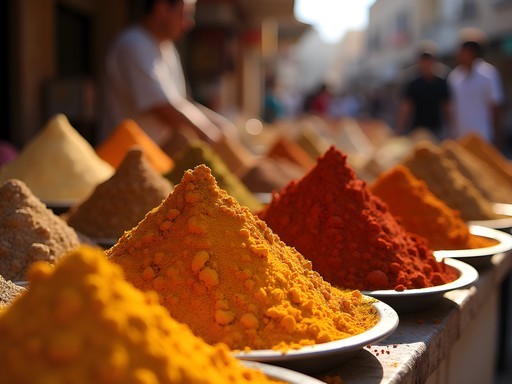







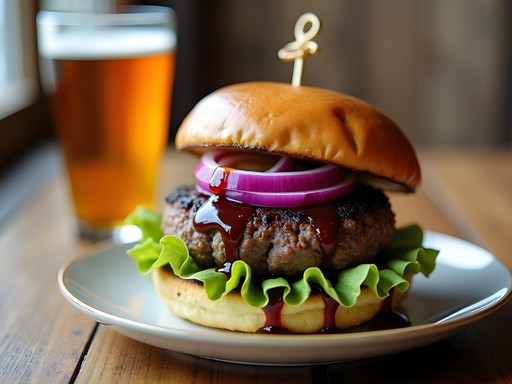
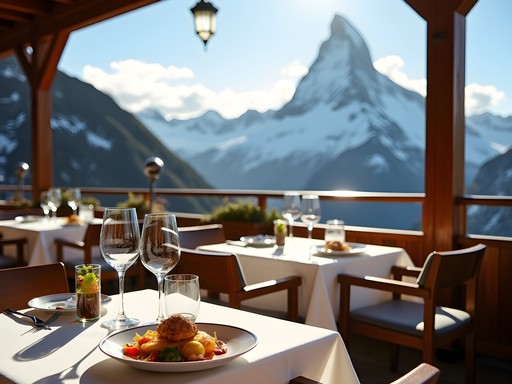
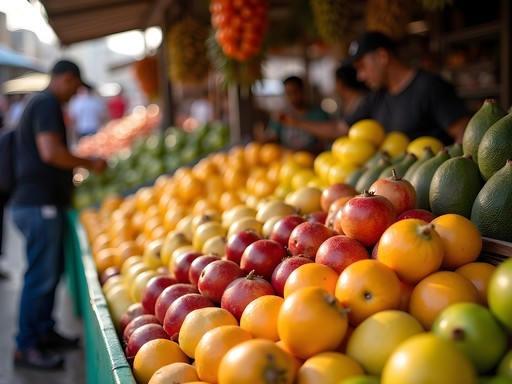
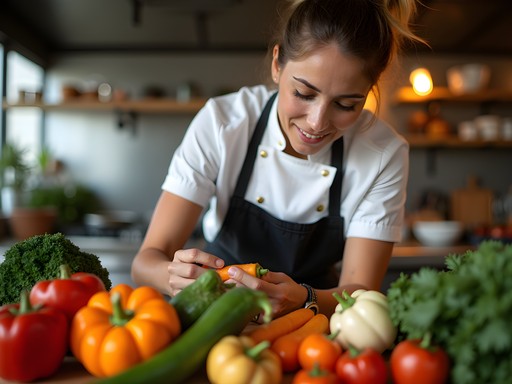
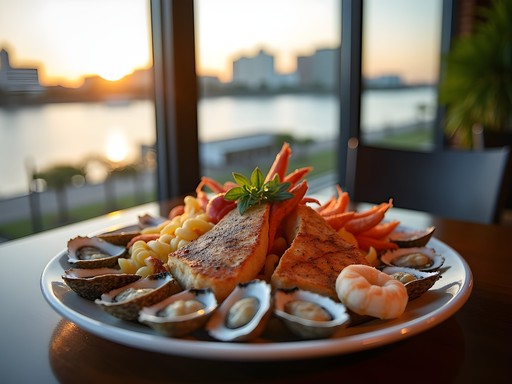
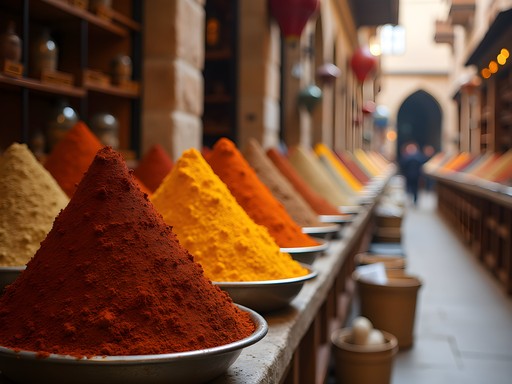
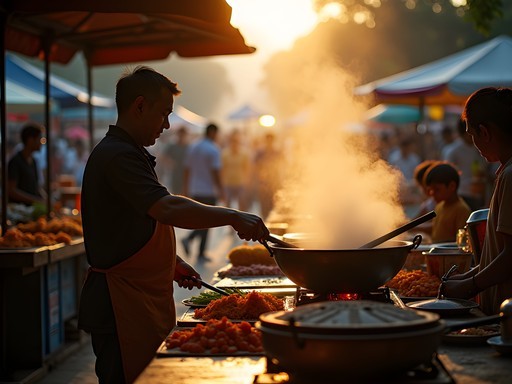
Comments
wintergal
I was in Constantine 3 years ago and your post brought back so many memories! The home cooked meal section really resonated - we got invited to a family dinner through our hotel owner and it was honestly the highlight of the trip. They made this incredible lamb tagine with apricots that I still dream about. One tip for anyone going: learn a few phrases in Arabic or French, it made such a difference in how welcomed we felt. Also the bridges at sunset are unreal for photos.
summervibes
how did you get invited to dinner?? that sounds so cool
wintergal
just by chatting with people! we asked our hotel owner for restaurant recommendations and he ended up inviting us to his family's place instead. people there are super friendly if you're respectful and genuinely interested
Taylor Moreau
Jennifer, excellent piece on Constantine's culinary landscape. I visited last autumn and completely agree about the breakfast rituals—the coffee culture there is extraordinary. One tip for readers: if you're planning market visits, go early morning (around 7am) when vendors are setting up. The energy is incredible and you'll get the freshest produce. I found the locals particularly welcoming when I showed genuine interest in their ingredients and cooking methods. Did you manage to try any of the home-style couscous preparations? Those were highlights of my trip.
explorewanderer7127
7am market visits sound perfect! Thanks for the tip
Jennifer Rodriguez
Taylor, yes! The couscous was incredible. I had a family meal on my last evening that I'll never forget. Your tip about early morning markets is spot on—that's when you really see the city come alive.
Dylan Turner
Jennifer, excellent breakdown of Constantine's culinary landscape. I visited last year and was similarly impressed by the depth of flavors in the traditional dishes. One thing I'd add for readers: if you're staying in the newer part of the city, the taxi ride to the old medina is worth it specifically for breakfast. The cafés near Souk El Asr serve an incredible *mahjouba* (stuffed crepes) that rivals anything I've had in Algiers. Also, regarding your mention of ras el hanout - I found the spice vendors near Place des Martyrs to be particularly knowledgeable and willing to explain the different regional variations. Did you manage to bring any spices back home?
Jennifer Rodriguez
Dylan! Yes, I brought back SO much ras el hanout and some dried mint. The vendor near Place des Martyrs - was that the older gentleman with the green awning? He spent like 30 minutes teaching me about the spice blends. Absolute legend.
explorewanderer7127
This looks amazing! Adding Constantine to my list!
summervibes
omg this looks amazing!! how safe is it to eat the street food there?
Jennifer Rodriguez
Super safe! Just look for the busy stalls with lots of locals - that's always a good sign. I ate street food every day and had zero issues.
summervibes
thanks!! definitely going now
roamlegend
YES! Finally someone writing about Constantine's food scene! I've been telling people for years that Algerian cuisine is criminally underrated. Those bridge views while eating street food are unbeatable. Did you try the local olive oil? I brought home three bottles and I'm already running low. Your description of the breakfast rituals is spot on - I still make mint tea the Constantine way every morning!
Dylan Turner
Jennifer has done what few travel writers manage - capturing both the sensory experience and cultural context of Constantine's cuisine. I've been researching North African food traditions for my upcoming book, and the way she connects the city's dramatic topography to its culinary identity is spot-on. The suspension bridges aren't just Instagram backdrops; they've shaped how communities interact and share food traditions. One point worth adding: Constantine's Jewish culinary heritage has nearly vanished but once contributed significantly to local dishes. Some older residents still prepare t'fina (similar to Moroccan dafina) on special occasions - worth seeking out if you can make local connections.
Jennifer Rodriguez
Dylan, that's fascinating about t'fina! I didn't encounter it during my visit, but I'm now wishing I had. You're absolutely right about the bridges - they're not just physical connectors but cultural ones. Looking forward to your book!
islandgal
I'm planning a trip to Algeria next year and Constantine is on my list. How many days would you recommend staying there to really experience the food scene? Also, any safety tips for a solo female traveler?
Jennifer Rodriguez
I'd recommend at least 3-4 days in Constantine to really explore the food scene. As for safety, I felt quite comfortable as a solo female traveler, but I'd suggest dressing modestly and learning a few basic Arabic phrases. The locals really appreciate the effort! Also, I found my pocket translator incredibly helpful in the markets when trying to ask about ingredients.
wanderlustblogger5131
Those suspension bridges! 😮 Breathtaking views!
George Hayes
Your post brought back so many memories! We took our kids to Constantine last summer, and the food was the highlight of our trip. My 10-year-old still talks about the street vendor who made those delicious bourek pastries right in front of us. The way he flipped the dough was like watching a magic show! We also found this tiny family restaurant near Sidi Rached bridge where the grandmother made the most amazing couscous with seven vegetables. Did you notice how every family seems to have their own secret spice blend? I filled half my suitcase with spices from that market you mentioned! The kids were initially hesitant with the new flavors but by day three they were asking for seconds of everything.
roamlegend
George - was that restaurant called Dar El Yasmine? I think I ate at the same place! That grandmother is a culinary genius!
George Hayes
Yes! That's the one! Did she also insist on feeding you extra portions? She practically adopted our kids for the evening!
Venture X
Premium card with 2X miles, $300 travel credit, Priority Pass